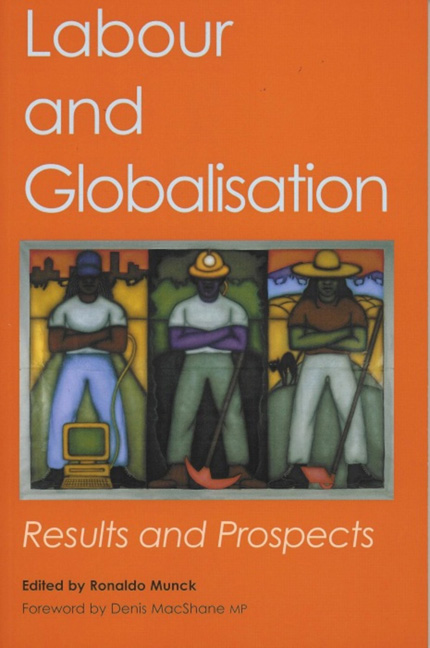Book contents
- Frontmatter
- Contents
- Acknowledgements
- Foreword
- Notes on the Contributors
- List of Abbreviations
- Introduction: Globalisation and Labour Transnationalism
- Part I Global Dimensions
- Part II Spatial Dimensions
- Part III Social Dimensions
- 9 Beyond Unions: Labour and Codes of Conduct
- 10 Globalisation and Child Labour: Protection, Liberation or Anti-Capitalism?
- 11 Globalisation, Trade Unionism and Solidarity: Further Reflections on the Liverpool Dock Lockout
- 12 Globalisation and Trade Union Strategy: Evidence from the International Civil Aviation Industry
- Index
10 - Globalisation and Child Labour: Protection, Liberation or Anti-Capitalism?
from Part III - Social Dimensions
- Frontmatter
- Contents
- Acknowledgements
- Foreword
- Notes on the Contributors
- List of Abbreviations
- Introduction: Globalisation and Labour Transnationalism
- Part I Global Dimensions
- Part II Spatial Dimensions
- Part III Social Dimensions
- 9 Beyond Unions: Labour and Codes of Conduct
- 10 Globalisation and Child Labour: Protection, Liberation or Anti-Capitalism?
- 11 Globalisation, Trade Unionism and Solidarity: Further Reflections on the Liverpool Dock Lockout
- 12 Globalisation and Trade Union Strategy: Evidence from the International Civil Aviation Industry
- Index
Summary
Do you charge us with wanting to stop the exploitation of children? … To this crime we plead guilty. (Marx and Engels, 1848: 487)
Unorganized, with few dependents, no rights, a need for income, and vulnerable by their very nature, children are the most readily exploited of all labour groups. (Fyfe, 1989: 5)
[T]he issue of child labour cannot be addressed without … addressing the increasingly obvious inequalities of the global economy, but also questioning western assumptions about the value systems and lifestyles of other societies. (Newbery, 2000: 14)
The reasons I stitch footballs is because my parents cannot afford the cost of my education … If there were a ban on child labour, most of the people in my village would go hungry. (Khalid Hussain, aged 15, quoted on the Save the Children Fund homepage: www.oneworld.org)
Child labour … drives down wages and replaces adults … The practice perpetuates poverty … the ‘right to work’ may mean accepting inhuman conditions in order to survive. (George, 1999: 176)
At the start of the twenty-first century, child labour has once again become a significant social problem motivating trade unions, NGOs and social movement activists to demand improved living conditions for children across the world. Campaigning has become more visible over the last twenty years. Trade unions have argued for various ‘social clauses’ to be included in trade agreements to guarantee various worker rights and a ‘zero tolerance’ of child labour. NGOs have increasingly argued for a child's right to work in combination with improved educational options for young people in developing economies. More recently child labour control has become a central demand of the American student ‘No Sweats’ campaign, described as part of the most significant social protests to rock America since the anti-war movement of the late 1960s and early 1970s (‘No Sweat?’, Panorama, BBC Television, 15 October 2000).
However, there is little agreement among this disparate group of organisations and individuals over what precise measures should be taken to prevent children from working. For trade unions it is prevention by passing restricting legislation and enacting social clauses, but for NGOs this is to impose a ‘Western’ conception of childhood onto ‘Third World’ children.
- Type
- Chapter
- Information
- Labour and GlobalisationResults and Prospects, pp. 181 - 205Publisher: Liverpool University PressPrint publication year: 2003



